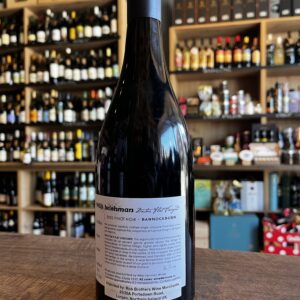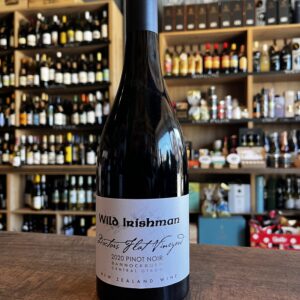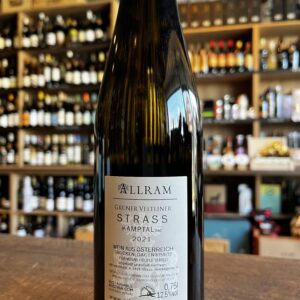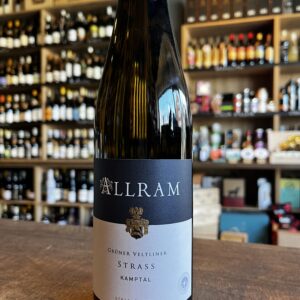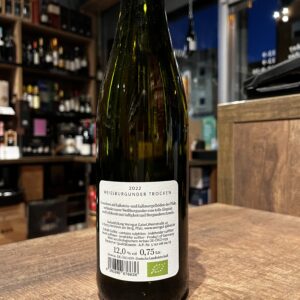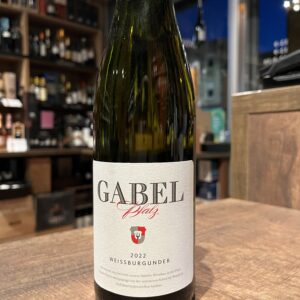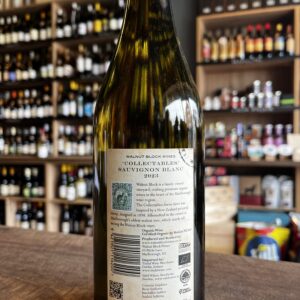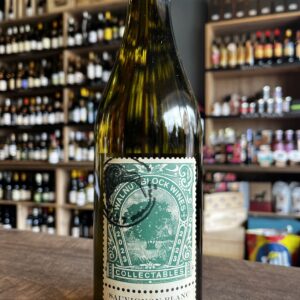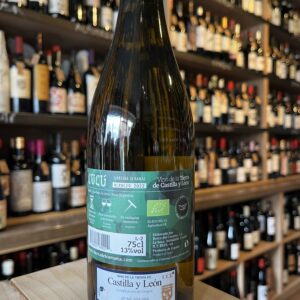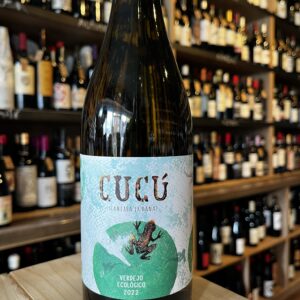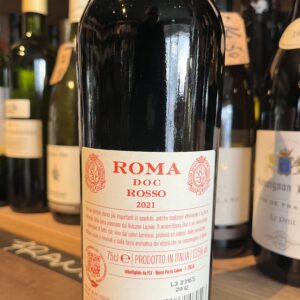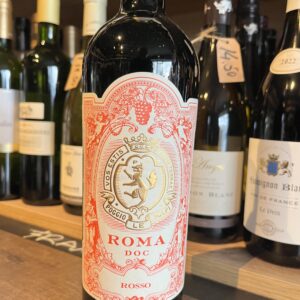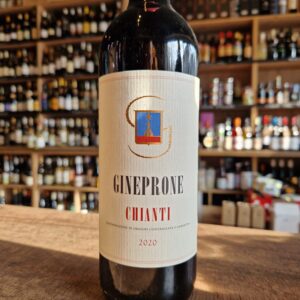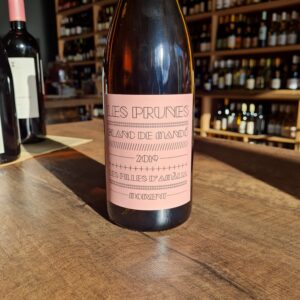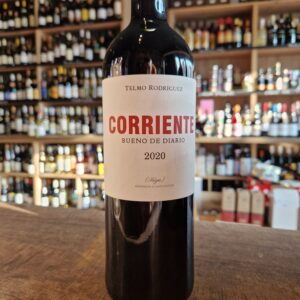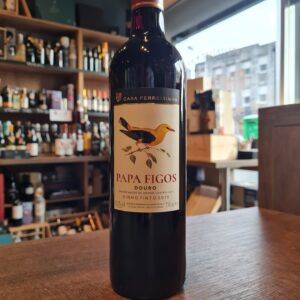-
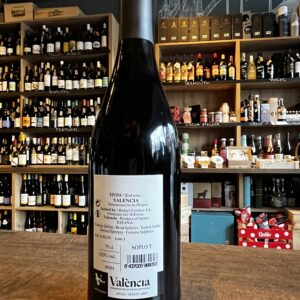
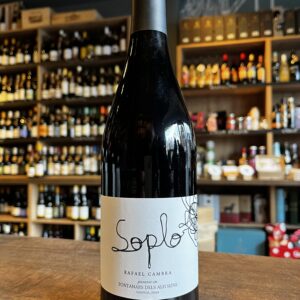 Rafael Cambra has spent most of his life in a vineyard. His family own one of the most prestigious nurseries in Spain, with clients like Vega Sicilia, Alvaro Palacios and many more. He established his own cellar in 2001 after finding a vineyard with 50-year-old Monastrell vines. He also planted some Cabernet Sauvignon and Cabernet Franc. The vineyards lie in the lowest part of the Sierra, inland from Valencia, with olive and almond trees surrounding them. Rafael believes in minimal intervention when it comes to wine-making, creating elegant yet restrained wines. He is an innovative wine-maker, constantly experimenting with different grapes and blends until completely satisfied with the result. Charcuterie, Red meat, White meat, Poultry, Mushroom, Barbecue, Exotic cuisine, Cheese.
Rafael Cambra has spent most of his life in a vineyard. His family own one of the most prestigious nurseries in Spain, with clients like Vega Sicilia, Alvaro Palacios and many more. He established his own cellar in 2001 after finding a vineyard with 50-year-old Monastrell vines. He also planted some Cabernet Sauvignon and Cabernet Franc. The vineyards lie in the lowest part of the Sierra, inland from Valencia, with olive and almond trees surrounding them. Rafael believes in minimal intervention when it comes to wine-making, creating elegant yet restrained wines. He is an innovative wine-maker, constantly experimenting with different grapes and blends until completely satisfied with the result. Charcuterie, Red meat, White meat, Poultry, Mushroom, Barbecue, Exotic cuisine, Cheese. -
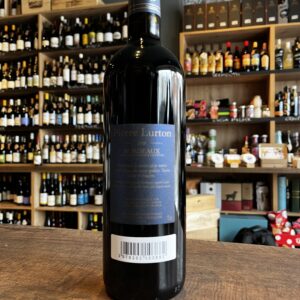
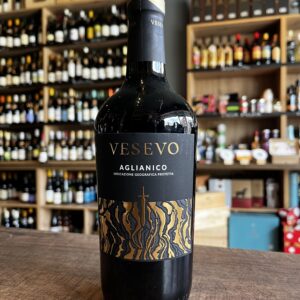 Vesevo” is the ancient name of the volcano Vesuvio, which, with its dramatic past eruptions has given life to a special soil type that today is the real wealth of the area. Vesevo owns over 60 ha and, though being one of the youngest companies of the area, it produces some of the best wines and soon became a reality of great success in the region.
Vesevo” is the ancient name of the volcano Vesuvio, which, with its dramatic past eruptions has given life to a special soil type that today is the real wealth of the area. Vesevo owns over 60 ha and, though being one of the youngest companies of the area, it produces some of the best wines and soon became a reality of great success in the region. -
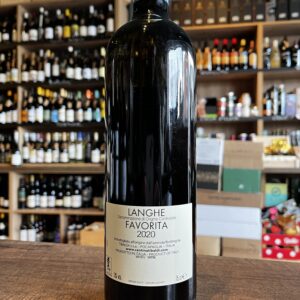
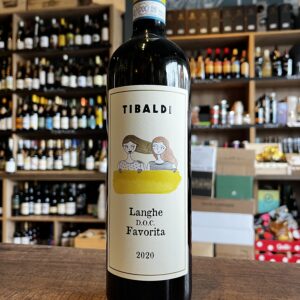 Normally I look for the inside story and drop it here. I reckon in this case its so personal that I let them tell their story... ''We are Monica and Daniela, two sisters born and raised breathing love for the winegrowing in the Roeroa colourful land, rich in biodiversity that fills us with new stimuli every day. We have inherited a passion for vines and grapes, by our father Stefano and grandfather Tunin, and so we decided to start winemaking and bet on Pocapaglia. We manage the entire wine production process: from the vineyard, where our father's help is still fundamental, to the cellar, without neglecting marketing. We both believe in commitment and tenacity, two essential ingredients to achieve the desired quality. Together we have fun, for us it is not just an occupation but it is a life choice that sees us immersed in our passion eight days a week!'' Life can be so simple and yet produce amazing and complex things... If you like Vermentino you will like this as it is its clone Pair it with someone you love
Normally I look for the inside story and drop it here. I reckon in this case its so personal that I let them tell their story... ''We are Monica and Daniela, two sisters born and raised breathing love for the winegrowing in the Roeroa colourful land, rich in biodiversity that fills us with new stimuli every day. We have inherited a passion for vines and grapes, by our father Stefano and grandfather Tunin, and so we decided to start winemaking and bet on Pocapaglia. We manage the entire wine production process: from the vineyard, where our father's help is still fundamental, to the cellar, without neglecting marketing. We both believe in commitment and tenacity, two essential ingredients to achieve the desired quality. Together we have fun, for us it is not just an occupation but it is a life choice that sees us immersed in our passion eight days a week!'' Life can be so simple and yet produce amazing and complex things... If you like Vermentino you will like this as it is its clone Pair it with someone you love -
Out of stock
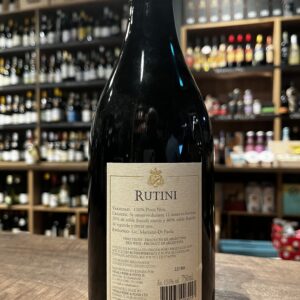
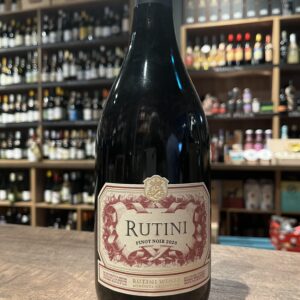 From the start, Felipe Rutini was guided by the motto “Labor and perseverance.” This attitude shaped the development of his wines, which became synonymous with superlative quality. Following his innovative spirit, in 1925 the winery began to plant vines in the Uco Valley. Uco Valley vineyards comprise over 400 hectares at an altitude of between 1,050 and 1,200 meters above sea level. An additional 120 hectares of fields that are currently being planted with vines will expand the winery’s possibilities for producing unique wines that are carefully tended to and nurtured from the very beginning. Very promising wines that need that leap of faith due to price. I suppose Mariano Di Paola being within the best 30 best winemakers in the world may have something to do with it... We do recomend it, just not everyday!
From the start, Felipe Rutini was guided by the motto “Labor and perseverance.” This attitude shaped the development of his wines, which became synonymous with superlative quality. Following his innovative spirit, in 1925 the winery began to plant vines in the Uco Valley. Uco Valley vineyards comprise over 400 hectares at an altitude of between 1,050 and 1,200 meters above sea level. An additional 120 hectares of fields that are currently being planted with vines will expand the winery’s possibilities for producing unique wines that are carefully tended to and nurtured from the very beginning. Very promising wines that need that leap of faith due to price. I suppose Mariano Di Paola being within the best 30 best winemakers in the world may have something to do with it... We do recomend it, just not everyday! -
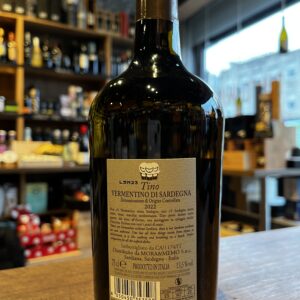
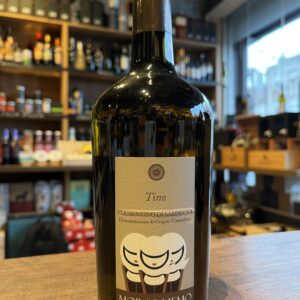 Their Vineyard is located in the south eastern corner of Sardinia in a rolling hill area looking at the sea of the Gulf of Cagliari. Vines with an average age of forty years our vineyards are able to express the best from the terroir of the south Sardinia. A unique terroir with the Sette Fratelli mountains, the tallest ones of the south of the island, just a mile away from the winery, behind them the beatiful beaches overlooking the Thyreenian sea. Pair with seafood in general, fish and delicate meat served with light sauces, soups or pasta.
Their Vineyard is located in the south eastern corner of Sardinia in a rolling hill area looking at the sea of the Gulf of Cagliari. Vines with an average age of forty years our vineyards are able to express the best from the terroir of the south Sardinia. A unique terroir with the Sette Fratelli mountains, the tallest ones of the south of the island, just a mile away from the winery, behind them the beatiful beaches overlooking the Thyreenian sea. Pair with seafood in general, fish and delicate meat served with light sauces, soups or pasta. -
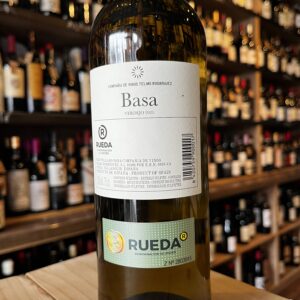
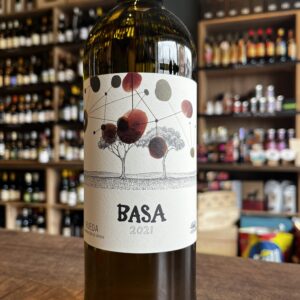 Telmo Rodriguez of Basque origin, studied wine at the Institute of Oenology in Bordeaux, before doing internships with Cos d’Estournel, Jean Louis Chave and Trevallon . He also worked in the vinification of wines from the family estate of Remelluri, in Rioja. Then, in 1990, with an investment of just a few thousand euros, he launched his own winery. He buys grapes to produce his first wines. His first plots of property did not arrive until 1997, in Rioja. Paradoxical for someone who was dying to explore new regions. One of the main principles of Telmo Rodriguez is that of respecting the Spanish tradition of cultivating the vine in goblet, because this method of managing the vine protects it from the great heat of Iberian vineyards. He is fiercely opposed to the fashion of trellising vineyards and only buys vines that respect his ideal. Telmo also works in biodynamics but, showing great common sense, he admits that he only does it for the respect of the land and that the mention of organic viticulture has no importance in his eyes. The important thing is that the result is a balanced and tasty wine. The name comes from the 40-year-old 'baso' or bush-trained vines that are planted on limestone-rich soils at over 700-meters elevation on a plateau along the Duero River. Soils are made of gravel from fluvial terraces, erosion slopes and glacis. Pairs great with comfort food, Tapas and Tortillas of all sorts
Telmo Rodriguez of Basque origin, studied wine at the Institute of Oenology in Bordeaux, before doing internships with Cos d’Estournel, Jean Louis Chave and Trevallon . He also worked in the vinification of wines from the family estate of Remelluri, in Rioja. Then, in 1990, with an investment of just a few thousand euros, he launched his own winery. He buys grapes to produce his first wines. His first plots of property did not arrive until 1997, in Rioja. Paradoxical for someone who was dying to explore new regions. One of the main principles of Telmo Rodriguez is that of respecting the Spanish tradition of cultivating the vine in goblet, because this method of managing the vine protects it from the great heat of Iberian vineyards. He is fiercely opposed to the fashion of trellising vineyards and only buys vines that respect his ideal. Telmo also works in biodynamics but, showing great common sense, he admits that he only does it for the respect of the land and that the mention of organic viticulture has no importance in his eyes. The important thing is that the result is a balanced and tasty wine. The name comes from the 40-year-old 'baso' or bush-trained vines that are planted on limestone-rich soils at over 700-meters elevation on a plateau along the Duero River. Soils are made of gravel from fluvial terraces, erosion slopes and glacis. Pairs great with comfort food, Tapas and Tortillas of all sorts -
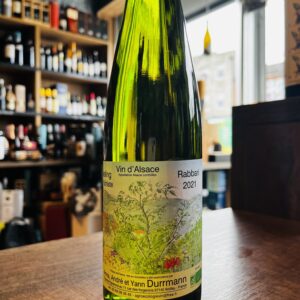 This wine is imported directly and only for Pinto Wines Riesling on Schist makes its terroir apparent with a livewire acidity and snap, rocky, chalky and mineral. Low yielding parcels. Long and driving, a little structure from 2022. The Durrmann family are making wine from their old family house in the middle of Andlau, a beautiful village nestled on the first slopes of the Vosges mountains south-west of Strasbourg. With a surface of only 1,5 hectare at the beginning in 1979, the domaine gradually reached a total surface of seven hectares after André decided to move back to farming and pieced it together from abandoned vineyard sites that were hard to work and no longer commercially viable, coming from his grandfather who made shoes to supplement the farm income. This lack of an established and family-based wine making tradition initially presented a weakness because the whole business had to be built, but it is also a strength because the company wasn’t limited to traditional customs, and therefore has always been oriented toward innovation. The vineyards are now scattered on about 30 spots around the village. They added parcels progressively when opportunities showed up and looked also for different soil qualities so that the cuvées express several terroirs. The Durrmans think that the quality of the wine is created by the work in the vineyard, that’s why their objective is its preservation. The wines are being disturbed as little as possible. They do not add any oenological product to change the natural taste of the wines. The production is partly vinified in inox tank and partly in old wooden casks. Son Yann has worked in the domaine since he was a child and officially took over the running of the business a year ago. André was among the first wave of organic winemakers in Alsace converting in 1998, Yann has then taken this a step further applying a more natural approach in the cellar. Selected cuvées are produced without sulfur addition since 2007. The Durrmanns are true eco warriors only having electric cars and using solar energy for hot water and heating. Pair it with Pork, Seafood, Curries, Spicy dishes
This wine is imported directly and only for Pinto Wines Riesling on Schist makes its terroir apparent with a livewire acidity and snap, rocky, chalky and mineral. Low yielding parcels. Long and driving, a little structure from 2022. The Durrmann family are making wine from their old family house in the middle of Andlau, a beautiful village nestled on the first slopes of the Vosges mountains south-west of Strasbourg. With a surface of only 1,5 hectare at the beginning in 1979, the domaine gradually reached a total surface of seven hectares after André decided to move back to farming and pieced it together from abandoned vineyard sites that were hard to work and no longer commercially viable, coming from his grandfather who made shoes to supplement the farm income. This lack of an established and family-based wine making tradition initially presented a weakness because the whole business had to be built, but it is also a strength because the company wasn’t limited to traditional customs, and therefore has always been oriented toward innovation. The vineyards are now scattered on about 30 spots around the village. They added parcels progressively when opportunities showed up and looked also for different soil qualities so that the cuvées express several terroirs. The Durrmans think that the quality of the wine is created by the work in the vineyard, that’s why their objective is its preservation. The wines are being disturbed as little as possible. They do not add any oenological product to change the natural taste of the wines. The production is partly vinified in inox tank and partly in old wooden casks. Son Yann has worked in the domaine since he was a child and officially took over the running of the business a year ago. André was among the first wave of organic winemakers in Alsace converting in 1998, Yann has then taken this a step further applying a more natural approach in the cellar. Selected cuvées are produced without sulfur addition since 2007. The Durrmanns are true eco warriors only having electric cars and using solar energy for hot water and heating. Pair it with Pork, Seafood, Curries, Spicy dishes -
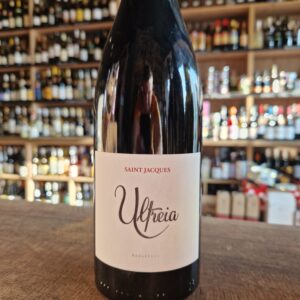 This winery is a personal project of the renowned oenologist from León, Raúl Pérez. Since he worked in the winery Castro Ventosa, which caused a true revolution in El Bierzo, Raúl Pérez has not stopped. He is undoubtedly one of the most admired winemakers in Spain, the master of wines with an Atlantic character. Pérez is the magician of Mencía, he knows the variety better than anyone and works his vineyards with total respect for nature. His wines are a lesson in elegance and their simplicity also proves that high quality doesn’t necessarily mean exorbitant prices. Pleasant, elegant and authentic wines that are definitely worth much more than they cost, such as Ultreia Saint Jacques, an astonishing Mencía red wine that offers so much for so little. In addition, its fresh personality makes it an ideal wine to be enjoyed even on summer days
This winery is a personal project of the renowned oenologist from León, Raúl Pérez. Since he worked in the winery Castro Ventosa, which caused a true revolution in El Bierzo, Raúl Pérez has not stopped. He is undoubtedly one of the most admired winemakers in Spain, the master of wines with an Atlantic character. Pérez is the magician of Mencía, he knows the variety better than anyone and works his vineyards with total respect for nature. His wines are a lesson in elegance and their simplicity also proves that high quality doesn’t necessarily mean exorbitant prices. Pleasant, elegant and authentic wines that are definitely worth much more than they cost, such as Ultreia Saint Jacques, an astonishing Mencía red wine that offers so much for so little. In addition, its fresh personality makes it an ideal wine to be enjoyed even on summer days -
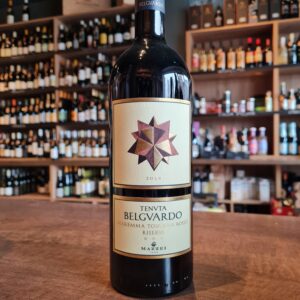 Made with Cabernet Sauvignon and a small percentage of Cabernet Franc grapes, this powerful and at the same time elegant wine is the most important "Cru" of the Estate, a pure expression of the Maremma "terroir". Technical sheet
Made with Cabernet Sauvignon and a small percentage of Cabernet Franc grapes, this powerful and at the same time elegant wine is the most important "Cru" of the Estate, a pure expression of the Maremma "terroir". Technical sheet -
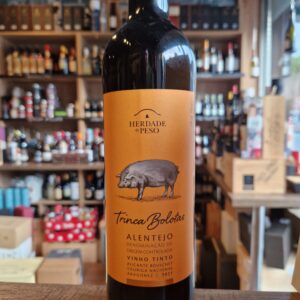 Moving freely through the cork oak forests of the Alentejo, where it feeds on acorns among other things, the Alentejo pig, a species indigenous to Portugal, is Europe's only surviving pastoral pig. Due to the way in which it forms part of the landscape and preserves the region's Mediterranean forest, it is part of Alentejo's heritage. Named after this reputable pig, this wine combines two of Alentejo's biggest symbols. All the grapes used in this wine were produced in accordance with the Sustainable Agriculture Integrated Production guidelines as defined by the International Organisation for Biological and Integrated Control (OILB/IOBC): www.iobc-wprs.org. The rigorous compliance with these practices is certified by an independent organisation, recognized by the Portuguese State. With its smooth tannins and enormous balance, this wine pairs wonderfully with light dishes, such as poultry and pasta, as well as with sausages, ham and more sophisticated meat dishes.
Moving freely through the cork oak forests of the Alentejo, where it feeds on acorns among other things, the Alentejo pig, a species indigenous to Portugal, is Europe's only surviving pastoral pig. Due to the way in which it forms part of the landscape and preserves the region's Mediterranean forest, it is part of Alentejo's heritage. Named after this reputable pig, this wine combines two of Alentejo's biggest symbols. All the grapes used in this wine were produced in accordance with the Sustainable Agriculture Integrated Production guidelines as defined by the International Organisation for Biological and Integrated Control (OILB/IOBC): www.iobc-wprs.org. The rigorous compliance with these practices is certified by an independent organisation, recognized by the Portuguese State. With its smooth tannins and enormous balance, this wine pairs wonderfully with light dishes, such as poultry and pasta, as well as with sausages, ham and more sophisticated meat dishes. -
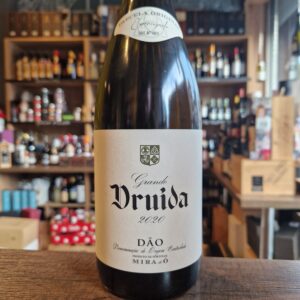 Nuno Mira do Ó is a one-man viticulture and enology powerhouse. A deep-thinking, well-traveled, generous person totally focused on expressing the great terroir of his native country. His peers look his way for guidance because his experience bringing forth wines of place covers almost every major wine region in Portugal. He launched his eponymous brand in the Dão wine region with Druida Encruzado. The wine is named for the ancient Celtic druids whose connection to the earth and plants drove their quest to achieve spiritual equilibrium through the balance of nature. As an enologist and viticulturist, Nuno is in constant search for balance between the soil, the climate, and the vines. Mira do Ó wines seek to attain perfect sensory balance with the utmost respect for nature. This is a pursuit driven by passion and a desire to share wines filled with freshness, elegance, and aging potential. These wines are handcrafted in the Dão from indigenous varietals with vineyards in granite soil sitting above 500 meters of elevation to capture the region’s cool climate. Store the bottles lying down in a cool place (15-17ºC). Drink at 11-12º C and pair with fine food.
Nuno Mira do Ó is a one-man viticulture and enology powerhouse. A deep-thinking, well-traveled, generous person totally focused on expressing the great terroir of his native country. His peers look his way for guidance because his experience bringing forth wines of place covers almost every major wine region in Portugal. He launched his eponymous brand in the Dão wine region with Druida Encruzado. The wine is named for the ancient Celtic druids whose connection to the earth and plants drove their quest to achieve spiritual equilibrium through the balance of nature. As an enologist and viticulturist, Nuno is in constant search for balance between the soil, the climate, and the vines. Mira do Ó wines seek to attain perfect sensory balance with the utmost respect for nature. This is a pursuit driven by passion and a desire to share wines filled with freshness, elegance, and aging potential. These wines are handcrafted in the Dão from indigenous varietals with vineyards in granite soil sitting above 500 meters of elevation to capture the region’s cool climate. Store the bottles lying down in a cool place (15-17ºC). Drink at 11-12º C and pair with fine food. -
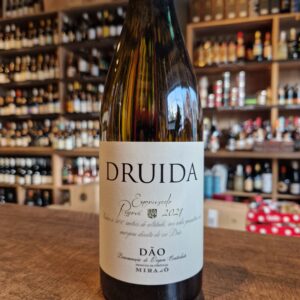 Mira do O produces expressive, concentrated wines. Despite the concentration, all the wines are fresh, elegant, well-balanced and shows great maturation potential. Dao region is valued by wine lovers for its expressiveness, freshness, concentration of taste and longevity of the wine. The region is a little further away from the Atlantic Ocean, but its cold winds still cool Dao vineyards. For this reason, the wine is high levels of acidity and great balance. The poor granite soil prevalent in the region gives the wines more texture, depth and spice. It is worth mentioning that here is a register and a large part of the old, local Portuguese grapes. Mira do O Druida Encruzado Reserva is made from a small vineyard located on a 500-meter plateau. This plateau provides protection from excess Atlantic moisture. At the same time, the temperature fluctuations caused by this altitude allow the grapes to ripen perfectly during the day, but they are more refreshing due to the cooling vineyards. The winemaker follows the principle of minimalist intervention: to change the wine as little as possible during its production. For this reason, the very characteristics of the grape stand out. Pair it with aperitif, roast white meats, sautee greens
Mira do O produces expressive, concentrated wines. Despite the concentration, all the wines are fresh, elegant, well-balanced and shows great maturation potential. Dao region is valued by wine lovers for its expressiveness, freshness, concentration of taste and longevity of the wine. The region is a little further away from the Atlantic Ocean, but its cold winds still cool Dao vineyards. For this reason, the wine is high levels of acidity and great balance. The poor granite soil prevalent in the region gives the wines more texture, depth and spice. It is worth mentioning that here is a register and a large part of the old, local Portuguese grapes. Mira do O Druida Encruzado Reserva is made from a small vineyard located on a 500-meter plateau. This plateau provides protection from excess Atlantic moisture. At the same time, the temperature fluctuations caused by this altitude allow the grapes to ripen perfectly during the day, but they are more refreshing due to the cooling vineyards. The winemaker follows the principle of minimalist intervention: to change the wine as little as possible during its production. For this reason, the very characteristics of the grape stand out. Pair it with aperitif, roast white meats, sautee greens -
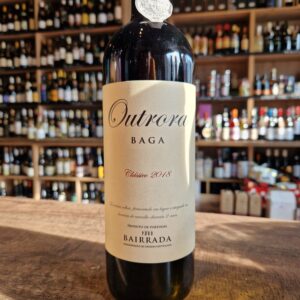 This Bairrada Classic wine is a tribute to the centenary vineyards, matriarchs of the region and witnesses of past times. The grapes are selected from 80 to 120 year old vines from our vineyard in the Cadoiços Valley. Winemaking in “lagar” with foot treading, besides being an old technique, we believe it remains the best way to obtain great wines of this variety. The two-year oak stage and subsequent bottle rest give the elegance and balance needed for a wine to be tasted for many years. An Impressive Bairrada!An Impressive Wine! Goes well with buttered Goat and Sheep Cheeses, traditional sausages (raw, boiled, or roasted), red meats
This Bairrada Classic wine is a tribute to the centenary vineyards, matriarchs of the region and witnesses of past times. The grapes are selected from 80 to 120 year old vines from our vineyard in the Cadoiços Valley. Winemaking in “lagar” with foot treading, besides being an old technique, we believe it remains the best way to obtain great wines of this variety. The two-year oak stage and subsequent bottle rest give the elegance and balance needed for a wine to be tasted for many years. An Impressive Bairrada!An Impressive Wine! Goes well with buttered Goat and Sheep Cheeses, traditional sausages (raw, boiled, or roasted), red meats -
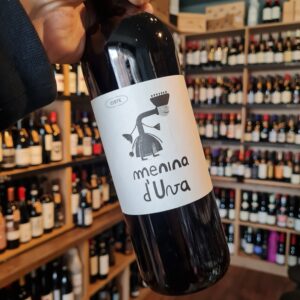 Menina d’Uva is a small winery located in Uva, a remote village in the quiet and desolate countryside of the Northeast of Portugal. Female winemaker Aline Domingues moved from Paris to this area from which her parents had emigrated to Paris to give their children better opportunities. A controversial move within the family but one that I wholeheartedly support. Aline clearly is a talented winemaker crafting beautifully pure wines. Made from 70% red grapes (including Bastardo, known in the Jura as Trousseau) and 30% white grapes including Malvasia and white Bastardo. It’s still a hearthy red that’s crispy and refreshing; cherries, pomegranate with a beautiful smell of the forest. Highly recommended.
Menina d’Uva is a small winery located in Uva, a remote village in the quiet and desolate countryside of the Northeast of Portugal. Female winemaker Aline Domingues moved from Paris to this area from which her parents had emigrated to Paris to give their children better opportunities. A controversial move within the family but one that I wholeheartedly support. Aline clearly is a talented winemaker crafting beautifully pure wines. Made from 70% red grapes (including Bastardo, known in the Jura as Trousseau) and 30% white grapes including Malvasia and white Bastardo. It’s still a hearthy red that’s crispy and refreshing; cherries, pomegranate with a beautiful smell of the forest. Highly recommended.


